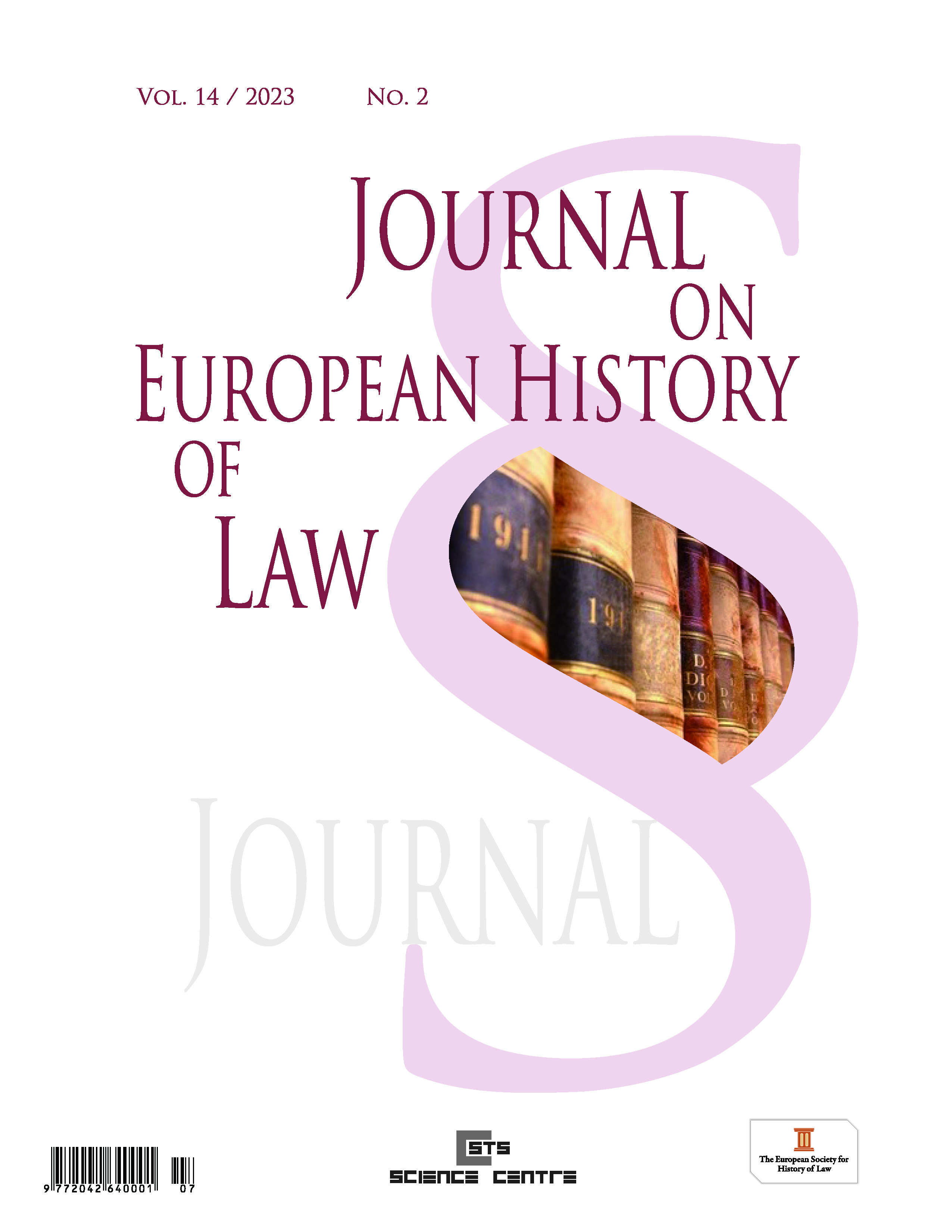Il postliminio di Ostilio Mancino
Hostilius Mancinus’ Postliminium
Author(s): Stefano BarbatiSubject(s): History, Law, Constitution, Jurisprudence, Roman law
Published by: Evropská společnost pro právní dějiny, z.s.
Keywords: Roman Law; Later Roman Republic; Law of Persons; Relationships with Foreign People; Jurisprudence;
Summary/Abstract: The purpose of the article is to inquire thoroughly into the sources about Mancinus’ postliminium. The most relevant sources for the juridical issues related to the topic are Cicero, Pomponius and Modestinus. Common source of those authors are the 18th libri iuris civilis of Quintus Mucius, published around 90 b. C., in which the matter was discussed in the heading related to postliminium, according to its explanation in the dialogues on the ius civile, published by the jurist Brutus between 135 and 133 b. C., and to what Quintus Mucius’ father, Publius Mucius, has told his son during his education. The essay shows at first how all the relevant issues took place during 136 b. C.: the surrendering (deditio) of the past (137 b. C.) consul Mancinus to the enemies (the Numantini), their refusal to accept him, his return to Rome, his entrance to the Senate, his expulsion decreed by a tribune and the immediately following discussion on Mancinus’ status in the Senate between the senator Brutus, preeminent jurist, and the pretor Publius Mucius, as well preeminent jurist. To solve the groovy state of our sources, the essay distinguishes among 6 relevant topics: Publius Mucius’ thought; Brutus’ thought; content of the law enacted as to regard Mancinus’ case; Quintus Mucius’ interpretation of it (90 b. C.); Cicero’s interpretation of it (between 70 and 44 b. C.); Modestinus’ interpretation of it (around 240 a. C.). On each of those topics, the article enlightens at first the state of the art and then proposes the author’s view. The author thinks that Publius Mucius adhered to the traditional nullity of the deditus’ postliminium, no matter if he was accepted or not by the enemies; that Brutus thought the a deditus rejected by the enemies was not a deditus, since deditio had to be conceived as a bilateral instead of unilateral act; that the law enacted on the case adhered to Brutus’ view because of its approval by the senator and preeminent jurist Manilius, counselor of the consul Furius Philus who proposed to law to the people’s assembly: the statute law confirmed Mancinus’s citizenship instead of reinstalling him into Roman citizenship; that also Quintus Mucius adhered to Brutus’ new conception, followed, with some misunderstanding, by Cicero; that Modestinus, living far away from the later Republic, fell into deep misunderstanding of Mancinus’ case, which he read about in commentaries on the work of Quintus Mucius and Sabinus.
Journal: Journal on European History of Law
- Issue Year: 14/2023
- Issue No: 2
- Page Range: 189-205
- Page Count: 17
- Language: Italian

